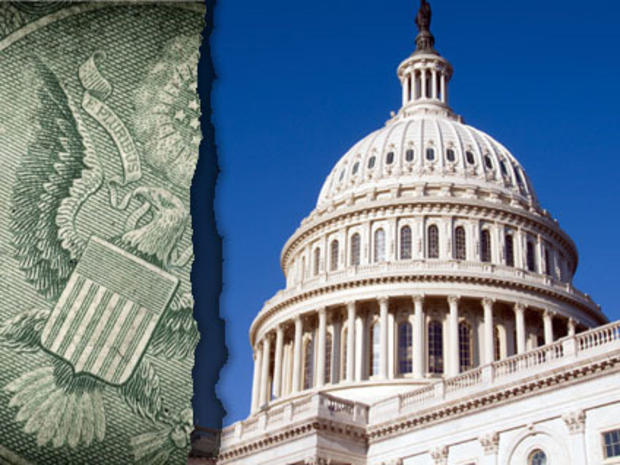What's in the budget bill?
Members on both sides of the Capitol spent the day sifting through the details of the 2011 budget bill that was released in the early morning hours on Tuesday.
The bipartisan deal crafted by President Obama, House Speaker John Boehner, R-OH, and Senate Majority Leader Reid, D-NV -- and agreed to late Friday night, averting a government shutdown -- contains $38 billion in budget cuts to a wide range of programs and services. The measure funds the government through the current fiscal year 2011, which ends September 30.
The cuts caused concerns among lawmakers reviewing the details Tuesday. Some Republicans complained the cuts didn't go far enough. Democrats argued they hurt those individuals and families most in need.
Representative Jim Jordan, an Ohio Republican and Chairman of the Republican Study Committee, said he will oppose the measure.
"I believe voters are asking us to set our sights higher," Jordan said. "Americans want us to reach higher, act bolder, and remember the job we were sent here to do
Independent Senator Bernie Sanders of Vermont, who caucuses with Senate Democrats, said he intends to vote against the bill because it harms American families.
"At a time when the gap between rich and everybody else is growing wider, this budget is Robin Hood in reverse. It takes from struggling working families and gives to millionaires," Sanders said. "This is obscene."
The cuts, while historic because of their size, did not appear to be as harsh as many had feared.
Some reductions in funding levels were considered significant, while others seemed to be cuts in name only. That's because they rely on accounting gimmicks, reducing money left over from previous years, cuts to earmarks and cuts to programs President Obama had intended to scale back or eliminate anyway.
The House and Senate are expected to vote on the measure before the end of the week.
Some of the spending cuts by size included in the budget deal (here's the entire list):
- 6.2 billion from military construction projects
- 1.4 billion from high speed rail
- 1.1 billion across-the-board cut to domestic programs
- 1 billion from clean and safe drinking water projects
- 946 million from the General Services Administration for construction and repair of federal buildings
- 942 million from community development grant funds
- 786 million from FEMA first responder grants
- 600 million from community health care centers
- 578 million from Army Corps of Engineers - construction, investigations and operations
- 504 million from Women, Infant and Children program (WIC) to poor mothers and their children
- 438 million from energy efficiency and renewable energy
- 415 million from assistance to state and local law enforcement and police departments
- 379 million from Economic support fund for overseas economic aid
- 377 million from U.S. contributions to United Nations and international organizations
- 390 million from heating subsidies for low income individuals
- 350 million from emergency aid and subsidies for dairy farmers
- 296 million from Community Oriented Policing Services, COPS, for local police departments for hiring employees
- 226 million from Customs and Border Patrol for security fencing, infrastructure and technology
- 226 million from fossil energy research and development
- 205 million from Millennium Challenge Corporation for foreign aid
- 200 million from FAA facilities and equipment projects
- 194 million from foreign food assistance programs
- 141 million from the Fish and Wildlife Service
- 127 million from the National Park Service
- 120 million from the strategic energy reserve
- 119 million from NOAA Operation and research facilities
- 119 million from wetlands reserve
- 105 million from Asian development fund
- 101 million from nuclear waste disposal
- 80 million from Corporation for Public Broadcasting
- 55 million from U.S. House of Representatives office budgets
- 33 million from TSA for security, administration and related programs
- 26 million from National Endowment for the Arts and National Endowment for the Humanities
- 17 million from Title X of the Public Health Service Act, family planning services program
- 10 million from U.S. Senate office budgets
